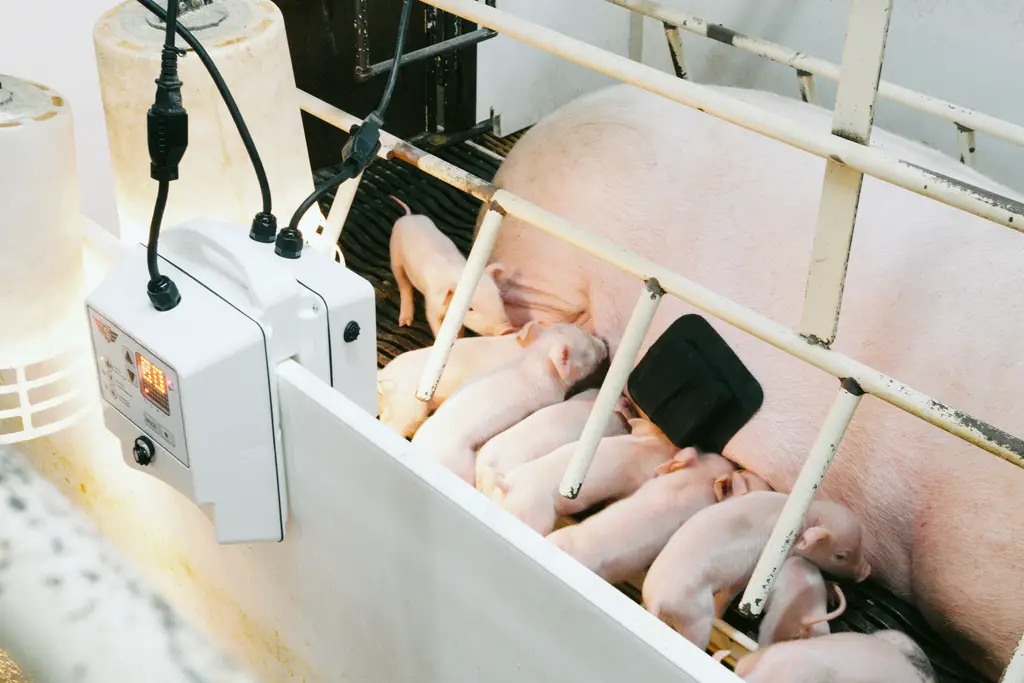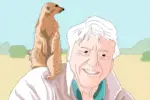Matthew Rooda, a twenty-four year old Illinois native who is currently attending University of Iowa, was working on a farm when he discovered that baby pigs were being crushed by their mothers. No one seemed to be working towards a solution for this problem, but he knew something needed to be done. He began research and realized that finding a solution to the crushing crisis would not only save piglet lives, it would save the pork industry millions of dollars. This is how SwineTech came to be.
SwineTech works in multiple ways to save the lives of baby pigs.
It starts with a device, Swinguard, that is plugged into the pens. Then, heating lamps are plugged directly into the device. The heat lamps are the first measure in protecting the piglets. By providing a source of heat, piglets are less likely to be huddled close to their mothers, and therefore less likely to be crushed.
The next protective measure is a belt that goes around the midsection of the sow and communicates with the Swineguard device. The device listens to piglet squeals and is able to identify the squeal of a pig that is being crushed. When this squeal is heard the device sends a small shock (less than that of a canine shock collar) to the belt, urging the sow to stand up, thus releasing the piglet.
This system is capable of saving millions of piglets per year, saving farmers billions of dollars and bettering the environment.
“We are simultaneously making life better for animals, the environment and for farmers. We can make it profitable for farmers to be better to the environment and to animals: that’s where we are headed,” Rooda said.
I called Rooda last week to learn more about his company, SwineTech, and his future goals.
He mentioned he was traveling but was vague about his exact whereabouts, somewhere in the U.S. in the “home of a University researcher” and that they would be spending the day “saving baby pigs” and “hormone sampling to make sure the animals aren’t stressed.”
The mention of baby pigs automatically has an awhh effect that Rooda must get this often. He chuckled at my reaction and proceeded to tell me about the life they were able to save the day prior: “It was all but dead…this farm didn’t have any of our systems yet. We found him right as we came in and got him out [from under the sow] and gave him some air and he finally started breathing. This morning he was running around happy as can be.”
Rooda says they experience similar rewarding days on a regular basis.
SwineTech has raised 1.3 million in investment funding so far and is currently being implemented on three large farms. I asked Rooda if his young age has made it hard to get started and to be taken seriously but his response was very positive. He talked about academia, specifically professors who have more degrees than himself, looking down on him, but the science world seems glad to see young innovators such as himself.
Originally, Rooda wanted to go to med school and become an obstetrician. He was advised to do something different to make his med school applications stand out. This is what made him decide to go into farms and gain experience working with sows and delivering piglets. It wasn’t his plan to start his own company, but, “it kind of [just] fell into place.” He saw a problem and knew it needed to be fixed.
Rooda grew up in farming and was told not to be a farmer. “My dad and grandpa always told me ‘don’t go into farming. Go find something else.’” He did not know it at the time but his dad would give him the unpleasant jobs around the farm in attempt to dissuade him from pursuing a farming career. Rooda was following this advice, on the road towards grad school and becoming a medical doctor, but once he returned home, he ultimately found his passion. Although he did not take his dad’s advice, he knows he still has made him proud.
As for now, Rooda does not see the company moving towards other animal software, but instead growing “vertically” within the pork industry. He see’s SwineTech as a “gateway to changing” the way of farming; less loss and more sustainability.
They have reduced the number of days that mama pigs are kept confined but he knows society would like that number to be zero: “The consumer want to see it get to a place where the mom is not confined at all, and I think we might be able to achieve that.”
Rooda continues working towards solving problems and improving animal welfare within the pork industry. However, it hasn’t always been smooth sailing. Rooda recalls a time when they had to consider shutting down business. “Things were getting difficult and we had to have a serious talk and see if we could keep moving forward. We decided [to keep going] and now we have gotten where we are at today.” Apparently there is still an ongoing joke “that if the company were to fail [they] all move to Hawaii for a year.”
“I always enjoy being around pigs,” says Rooda when talking about their playful nature. They say you never work a day in your life if you do something you love, so it seems like Matthew Rooda is on the right path towards a work free life.

















